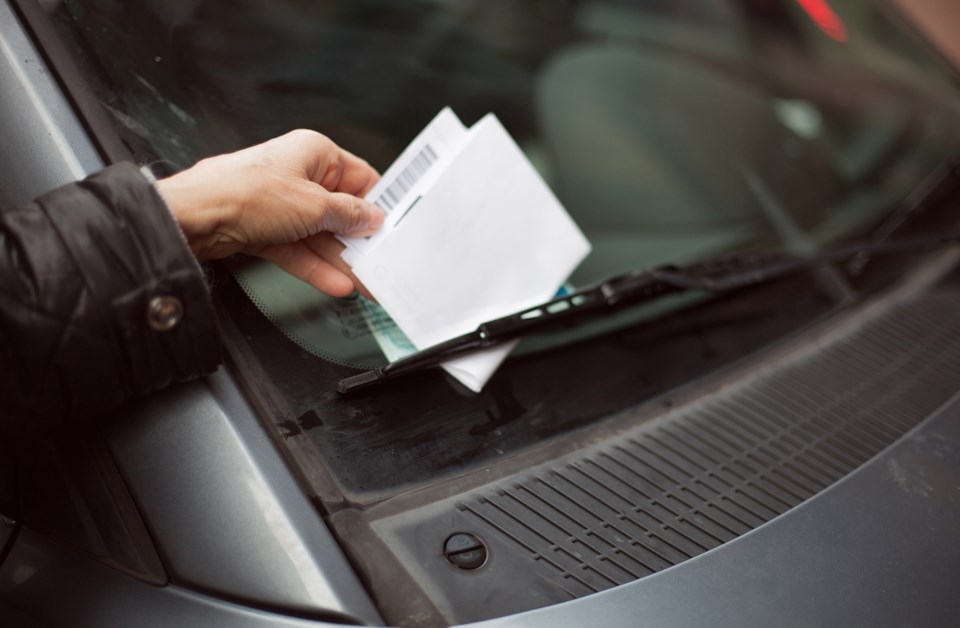The B.C. government is aiming to bring more traffic ticket disputes online, including having some of them heard without a judge.
However, one critic of the proposed changes is concerned access to justice will be curtailed — and this may have severe consequences to people’s insurance premiums and jobs with driving requirements.
Attorney General David Eby introduced a new bill last week to amend the Offense Act governing non-criminal traffic disputes, such as speeding and distracted driving.
One proposed amendment of Bill 17 will allow British Columbians to dispute their violation tickets online. A second proposed amendment would allow the court greater flexibility to set remote hearings “where appropriate.” A third proposed amendment will create a pilot project for new pre-hearing ticket dispute resolution options that would see significant voluntary restrictions for the disputant.
“This is an extremely broad piece of legislation, in my opinion,” said criminal defence lawyer Sarah Leamon.
Of particular concern to Leamon is language that opens the door for regulations (based on and allowed by the new act amendments) that may restrict an accused person’s rights to defend the allegations.
Leamon says she's worried future provincial lawmakers may set standards beyond the intent of the proposals that would not allow for a lawyer or even a judge to oversee more disputes.
The bill states that conferences in relation to violation tickets may be “held with or without a justice (judge).”
The amendment also allows for government to impose regulations “respecting who may, may not or must attend a conference.”
“It applies to ‘some’ traffic court proceedings. Well, they don't define what ‘some’ means, so it could really apply to all,” explained Leamon.
“And they use these very non-descript terms to kind of gesture at maybe where they're going, leaving the door wide open, for them to say, move traffic court proceedings online almost completely, take them out of the hands of a justice of the peace, exclude legal counsel, right, or other parties. Perhaps they want to exclude expert witnesses? I don't know, it’s just that broad,” said Leamon.
“It's setting the blueprint,” she said.
But Eby responded to Leamon this week after she went to media with her concerns.
“I guarantee that people will still be able to have lawyers at traffic court if they want to,” Eby told Glacier Media Wednesday.
Eby said the pre-hearing pilot project will indeed envision an option for disputants to quickly process their counter claim, which may be a simple request to lower the penalty.
“What we're doing is we're setting up a pilot project, where there are two stages. One is a stage where you're not paying a provincial court judge and you're not paying a police officer to attend. And you're not paying for the full trial process. It's just to see if that's the kind of resolution that the person wants — to negotiate around fees, payment timing, and that kind of thing. You don't need a judge for that.
“Theoretically, the legislation does include the possibility of excluding lawyers from that negotiation discussion, but that's not the intention, necessarily. It also allows the exclusion of other witnesses and other participants in the process. …The process would be entirely voluntary, and it's time limited,” explained Eby.
If successful, the program would be extended to lessen the burden on the court, added Eby.
There are approximately 80,000 violation ticket disputes filed each year in B.C. and approximately 30% of those disputes proceed to a hearing, according to the government.
But Leamon is still concerned people may not be fully apprised of their rights in addition to the overall possibility of expanding the scope of such a program.
She said traffic violations impact insurance premiums and people’s jobs.
“There's a huge concern. People sometimes think, ‘Oh, a traffic ticket, who cares?’ But traffic tickets carry enormous penalties for a lot of drivers in the province. It's not just a monetary fine... the accumulation of ICBC penalty points can result in licence suspensions or prohibitions; insurance rates can go up. And when you're a person who relies on your driver's licence to make or earn a living, these things can be very, very serious,” said Leamon.
She is also concerned about the shift to online processing.
“I think that it's really nice sometimes to talk about modernizing the judicial system, you know, and David Eby has said it'll be convenient for people to have their trial on their smartphone. I just think that that's completely disconnected from the reality of courtroom procedures, and how the judicial system actually works,” argued Leamon.
But Eby said online procedures have been successful since the onset of the pandemic.
“The provincial court pivoted during the pandemic to doing everything from serious bail hearings to collecting evidence from people through online processes. So if we can use virtual processes for matters as serious as someone's bail hearing then I think we can use it effectively for traffic tickets,” argued Eby.
The legislation also contemplates regulations that allow a person to have their statutory fine lowered based on their ability to pay the fine.
The proposed bill must eventually pass a fourth reading; there's no specific timeline for this.



